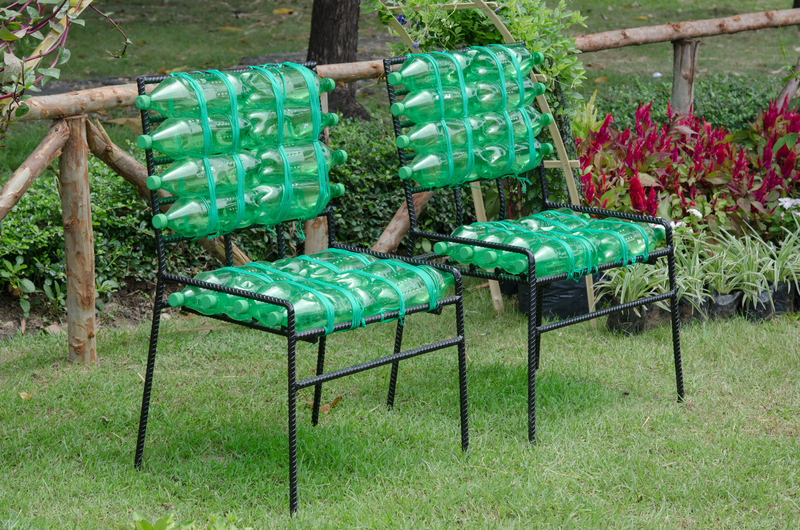Ways to Keep Your PPE Waste Out of Landfills
Personal protective equipment (PPE) has become an essential tool for health and safety in workplaces, educational institutions, and public spaces. From masks and gloves to face shields and gowns, PPE safeguards individuals from infectious diseases and hazardous materials. However, the proliferation of single-use PPE--in particular during the COVID-19 pandemic--has resulted in mounting concerns about environmental impact. Landfills are now receiving unprecedented volumes of PPE waste. That's why it is crucial to explore effective ways to keep your PPE waste out of landfills and adopt sustainable disposal strategies. In this comprehensive guide, we will delve into how you can responsibly manage PPE waste, making a positive difference for both the environment and your community.

Why Is PPE Waste a Growing Environmental Problem?
The widespread use of personal protective equipment, especially disposable items, has led to significant environmental challenges. Here are some key reasons why PPE waste is problematic:
- Non-biodegradability: Most PPE items are made from plastics like polypropylene, which can take hundreds of years to decompose.
- Contamination risk: Used PPE can harbor pathogens, making improper disposal a health hazard for waste handlers and the public.
- Increased landfill burden: Billions of disposable face masks and gloves are being discarded daily, swelling landfill volumes and incineration needs.
- Marine and terrestrial pollution: PPE litter finds its way into oceans and ecosystems, endangering wildlife and polluting our planet.
It's clear that innovative solutions are urgently needed to manage PPE waste more sustainably. Below, we explore the most effective methods and eco-friendly PPE waste management strategies to keep your protective gear from ending up in landfills.
1. Choose Reusable PPE Where Practical
One of the simplest ways to keep PPE waste out of landfills is to reduce reliance on single-use items. Whenever possible, switch to reusable PPE.
- Cloth Masks: Instead of disposable masks, use machine-washable cloth masks made from cotton or blended fabrics. They offer adequate protection for most public situations and can be reused hundreds of times.
- Reusable Face Shields and Gowns: Health care settings can benefit from PPE made out of durable, cleanable materials. This approach cuts down on waste and long-term costs.
- Proper Cleaning Protocols: Implement rigorous cleaning and disinfection procedures to ensure reusable PPE remains safe and effective.
By choosing reusable over disposable PPE, you not only reduce your waste footprint but also foster a culture of sustainability in your workplace or home.
2. Participate in PPE Recycling Programs
Recycling is an increasingly viable way to keep your PPE waste from clogging up landfills. Although traditional curbside recycling programs do not accept contaminated or used PPE, there are specialist initiatives and commercial partners that can collect and responsibly process PPE waste.
Private Recycling Solutions
- TerraCycle: This innovative company offers zero-waste boxes for PPE items like masks, gloves, and safety glasses. Once full, you simply ship the box back to them, and TerraCycle recycles or repurposes the materials.
- Medwaste Companies: Some medical waste management companies now provide PPE-specific collection and recycling services--ideal for hospitals, clinics, and large institutions.
Community PPE Recycling Drives
- Check with your municipal waste authority to see if there are special PPE collection drives or recycling depots in your locality.
- Organize a neighborhood or workplace PPE recycling campaign to gather large quantities and partner with specialist recyclers.
Pro tip: Always store used PPE in a secure bag or box until you can deliver it to a reputable recycler. Never place potentially contaminated items in open recycling bins.
3. Upcycle or Repurpose PPE Materials
If you're creative, you can repurpose PPE waste into useful items or materials--turning a disposal problem into an opportunity. This innovative approach minimizes waste while unleashing your ingenuity.
- Use clean, uncontaminated masks or gowns as cleaning rags, insulation, or DIY materials after proper disinfection.
- Crafty communities have started turning masks and gloves into art projects, plant hangers, or shopping bag lining.
- Collect elastic bands from disposable masks for future household uses.
While upcycling may not handle huge quantities, it's a significant and creative way to keep PPE out of landfills, especially in schools, art centers, or NGOs.
4. Advocate for Manufacturer Take-Back Programs
Several PPE manufacturers and distributors are pioneering take-back schemes to ensure responsible end-of-life management. By participating, you can make a bigger impact and encourage eco-responsibility in the supply chain.
- Return Old Gear: Return used or expired PPE to manufacturers that offer take-back or recycling partnerships. Many now accept back safety eyewear, hard hats, and other reusable gear.
- Extended Producer Responsibility: Support legislation or company policies that require PPE makers to manage post-consumer waste, incentivizing design improvements for recyclability and reusability.
Keep in mind, asking for and supporting take-back programs helps drive industry change, creating more scalable solutions for PPE waste management.
5. Educate and Train Users on Proper Disposal
Education is critical in the fight against PPE pollution. Most people dispose of PPE waste in whatever bin is closest--often mixing contaminated items with regular trash or recycling, which can endanger workers and ruin recyclables.
- Offer clear, simple signage about where and how to dispose of PPE waste in your workplace, organization, or community center.
- Conduct regular training sessions for staff to reinforce proper disposal habits, including the use of designated PPE bins.
- Discourage littering by sharing information on the environmental and health impacts of PPE waste in public spaces.
An informed community is far more likely to comply with disposal rules and become champions for sustainable PPE waste management.
6. Support Biodegradable or Compostable PPE
Emerging technologies are giving us access to eco-friendly PPE options made from plant-based fibers, starches, or compostable plastics. Using these products can greatly reduce landfill pressures and environmental harm.
- Biodegradable Masks and Gloves: Purchase PPE that is certified biodegradable, especially for use in low-risk environments where medical-grade protection is not required.
- Compostable Gowns: Some companies now produce gowns and other PPE that can break down safely in industrial or home composting systems.
- Check Certification: Always verify that biodegradable PPE is tested and approved according to regional or national standards.
While not a silver bullet, using biodegradable PPE is an excellent way to minimize your long-term environmental footprint and protect future generations.
7. Lobby For and Adopt Better Waste Management Policies
The system-wide solution to PPE waste requires government, industry, and public participation. As either an individual or organization, you can:
- Petition local authorities for dedicated PPE disposal bins in public places and commercial zones.
- Support policy incentives for businesses or institutions that adopt green PPE practices.
- Collaborate with environmental groups to draft guidelines and best practices for sustainable PPE management.
- Advocate for funding and research into PPE recycling infrastructure and next-generation biodegradable products.
Long-term reductions in landfill-bound PPE will only occur through sustained policy improvement and public awareness.
8. Reduce Overall PPE Usage
Prevention is always better than cure. By taking measures to reduce unnecessary PPE use, you can directly cut down on waste.
- Improve ventilation and hygiene protocols so PPE isn't required 100% of the time in workplaces.
- Train staff on which tasks genuinely need PPE, and avoid overuse in low-risk areas.
- Choose higher-quality PPE with longer lifespans where possible.
Efficient use of PPE means less purchasing, less waste, and lower costs for your business and the environment.

Frequently Asked Questions about PPE Waste Management
Can PPE be recycled in my regular recycling bin?
No, most municipal recycling facilities cannot process PPE because it's often contaminated and made from hard-to-recycle materials. It's best to use specialized PPE recycling schemes.
Are there any health risks associated with handling used PPE?
Yes. Used PPE, especially from healthcare environments, may carry pathogens. Handle with care, use gloves, and wash hands thoroughly after contact.
What are the best alternatives to disposable PPE?
Whenever health and safety allow, opt for reusable, washable PPE such as cloth masks and fabric gowns. Always clean them well before reuse.
Is biodegradable PPE effective?
Biodegradable PPE can be highly effective for most civilian uses, as long as it meets established safety standards. Always look for third-party certifications.
Conclusion: Embrace a Greener Future for PPE Waste
The surge in single-use personal protective equipment has highlighted deep challenges in global and local waste management systems. However, with strategic action and community engagement, there are many ways to keep PPE waste out of landfills--from choosing reusable or biodegradable products to participating in recycling programs or take-back schemes.
Educating yourself and others, supporting innovative manufacturers, and advocating for better policies can make a significant impact. Let's all take responsibility for how we dispose of PPE and strive for a safer, cleaner, and more sustainable world.
Ready to make a difference? Start today by reviewing your current PPE use and disposal protocols, and explore the options that best fit your environment. Every action counts in keeping PPE waste out of our landfills and protecting the planet for future generations!
